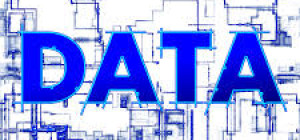To put it in layman’s terms, the deep web is simply the part of the Internet that is not indexed by search engines such as Google or Bing. But to get a better understanding of deep web data, there is the need to get the basics of what the dark web is as well.
Deep Web vs Dark Web
The fact that sites in the deep web are hidden from the public’s eye and are not indexed by search engines doesn’t mean that some folks out there can’t access what is hidden in there, no matter how difficult. In fact, it is many of the same types of people that are behind hiding these, probably for good reasons.
But out of curiosity, another group of people are always seeking to uncover what is being hidden from the general public, something that has given birth to what is known as the dark web. Essentially, the dark web is a network of encrypted websites containing everything from illicit marketplaces to people’s personal blogs, and is accessible by specialized browsing and anonymity software such as the TOR Browser and network.
This hidden network of websites provides a great environment for shadowy hackers, criminals, terrorists, and even activists to grow as it perfectly hides all illegal activity and their online communication. When these hackers get their hands on classified information that is meant to be hidden beyond the ‘eyes’ of the general public, it also changes their lives financially.
There are terrorist groups always hunting for military secrets and willing to pay significant amounts of money for someone to sell data or go out an acquire the data. Governments and business competitors want to get their hands on crucial data from other entities, and they can usually match the asking price of these hackers. The dark web is making people rich, but not always in the right way.
How does deep web data help hackers?
For starters, it’s essential to know that deep web data is protected by several layers of appropriate security and requires authentication to access. However, hackers can bypass these authentication levels and get their hands on the hidden data with enough time, effort, and technical knowledge. By selling this data, hackers start to build a reputation behind their groups or pseudonyms in addition to the financial profit. On the other hand, they can buy the data that other hackers have put up for sale on darknet marketplaces and use those sets as a starting point to start breaching accounts, sending phishing emails, and a myriad of other cyber-attacks.
Case Study
In October 2016, a news source in the UK revealed that hackers were open to attacking any target as long as they are paid to do so. In what was one of the most interesting news pieces of 2016, the publication bumped into a number of Twitter accounts where hackers were openly advertising their services to the public. Apparently, anyone who was willing to post a “bounty” with details of the amount they are willing to pay could openly talk to these guys and they’ll get the job done.
On the brighter side, those with large YouTube and Twitter followings and whose accounts are usually potential targets, for instance, were also being offered a chance to purchase hacking immunity. Where some bounties attracted one-off payments of between $200 and $4000, others were based on the amount one was willing to pay the hackers, which could even go beyond the already significant $4000. Thankfully for the average internet user, sites like Dark Web News provide up-to-date information on what’s taking place and how to protect yourself without having to be in the middle of it.
This month, we have already heard several cases where deep web data is making way into people’s hands unlawfully, with the hackers behind it coming out with some hefty sums of money. In Israel, it was recently reported that an American-Israeli is believed to have made millions of dollars by selling fake documentation including passports, identity cards,and travel visas on the dark web. In another notable headline, Bloomberg recently reported that hackers are selling tax refund documents at cheaper prices on the same hidden network.
Back in 2014, a study carried out by the University of Portsmouth found that the dark web’s most wanted content was child pornography. Demand for black market goods such as illegal firearms, drugs,and personal information came in second. Selling illegal drugs is, in fact, one of the most famous burst ups that have been seen on the internet. Silk Road was the largest online market for illegal drugs, with the man behind it known as Ross Ulbricht. The website was reportedly valued at a massive $34.5 million, with an impressive 1 million anonymous customers.
Silk Road was not only a place for selling illegal drugs, but basically a hub of all illicit products. Whether you wanted to hack someone’s Facebook account, purchase fake passports, buy pirated content,buy drugs, or any other number of products or services, you could find it there. It was even possible to see customer reviews of vendors on the platform. Silk Road’s initial shutdown was in 2013, and the founder was arrested in 2015 after a lengthy trial.
The famous WikiLeaks is an example of the good side of the dark web. Whistle-blowers are found here, where they can anonymously publish classified data or information to the press without being identified as a source. WikiLeaks currently has thousands of raw files available for viewing pertaining to activities of the US Government and many prominent individuals and entities.
The information available throughout the deep web can serve as a great boon to seasoned hackers and green-horns alike, it all depends on how they opt to use it. They can use the innumerable data sets available for download or purchase, they can sell the ones they’ve obtained themselves, or they can share their knowledge with the hacking community through any number of pseudonymous discussion boards.








